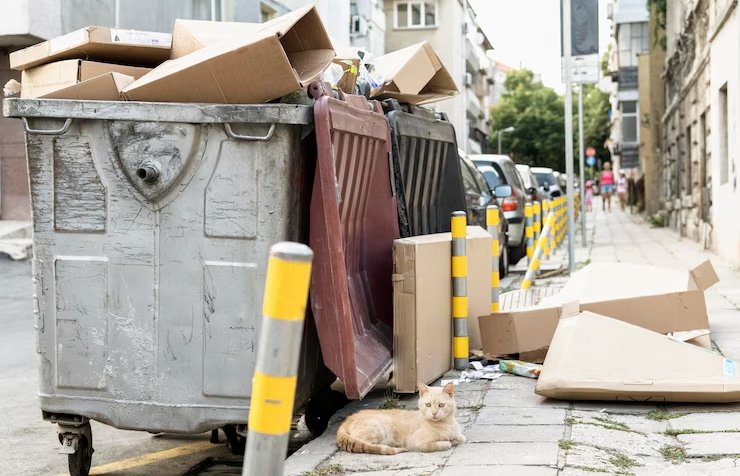
In London, appropriate waste disposal is important in keeping the environment green and clean. With the increase in population and waste, the London waste management services play a vital role in keeping the city clean. As a resident, business owner, or even a visitor, understanding how garbage collection is carried out in London will allow you to all help make the city greener. This article provides you with the basics of waste collection services, such as types, schedules, and how-tos in disposing properly.
Waste Collection Services in London
Waste collection in London is in compliance with numerous requirements, where recycling and disposal are done efficiently. This is a list:
- Household Waste Collection: Councils pick up general rubbish, recyclables, and garden waste in regular bin collections. Rubbish, recycling, and food/garden waste are sorted out in most homes.
- Commercial Rubbish Disposal: Companies can accept orders from independent waste disposal companies or councils, as needed, e.g., restaurant or shop rubbish.
- Recycling Collections: There are recycling collections provided by London councils for paper, glass, plastic, and metals. There are special bulk item recycling facilities in most areas.
- Bulk Waste Disposal: Independent services or councils organise arranged collection of bulk items such as furniture or appliances, at a possible fee.
- Hazardous Waste Disposal: Batteries, electronics, or chemicals must be disposed of with care and may be dropped off at designated drop-off points.
Waste Collection Schedules and Guidelines
All London boroughs have different collection schedules, so please check your local council website. Here are some general guidelines:
- Check Collection Days: Most of the boroughs collect weekly or fortnightly. Check on the council website by entering your postcode to see what yours is.
- Correct Use of Bins: Put the waste in the correct bin (e.g., recycling blue, garden green). Unsorted rubbish will lead to uncollected bins.
- Prebook Bulky Items: For bulk rubbish, prebook collection and adhere to council instructions for setting items out.
- Don’t Fill Bins Too Full: Full bins won’t get collected, and spillover rubbish will attract vermin or become litter.
Tips for Successful Waste Management in London
To maximise London’s waste collection services, use the following useful tips:
- Reduce Waste: Limit single-use plastics and make use of reusable items to reduce wastage.
- Recycle Correctly: Rinse food containers prior to recycling and avoid contaminating food waste with recyclables.
- Compost Food Waste: Use food bins or household composting to reduce landfill contribution.
- Reuse or Donate: Give saleable items to charity or use the Freecycle system for giving items a new life.
- Stay Informed: Keep up to date with council newsletters for notification of collection alterations or new recycling initiatives.
Why Proper Waste Management Matters?
Proper disposal of waste in London renders the city clean as well as assists in environmental aims. Properly disposing of the garbage and utilising available facilities, you reduce landfill use, conserve resources, and lower greenhouse gas emissions. Councils within London and other non-state organisations are dedicated to recycling at an increased level and maintaining sustainability, but residents’ contribution is most significant.
Wrapping Up
Knowledge about London’s waste services gives you the power to make decisions. From refuse collections to specialist services, these systems keep the city healthy. Look on your local council website for more detailed information, and make small steps towards a greener, cleaner London.